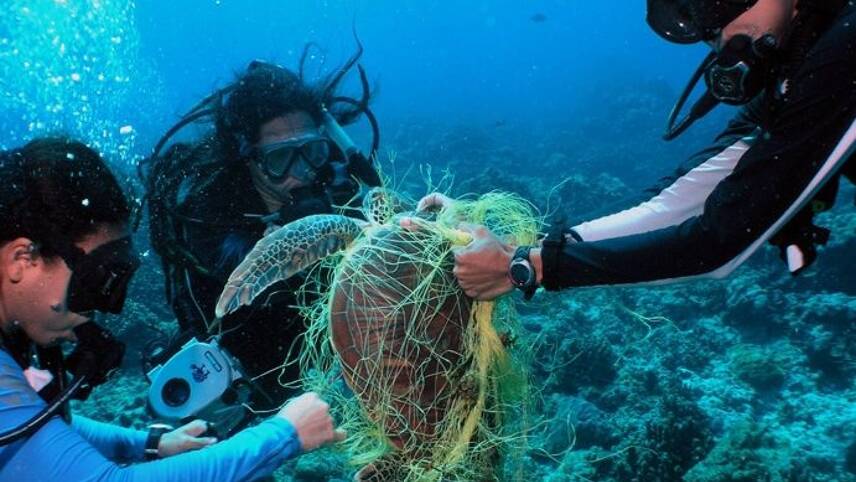Register for free and continue reading
Join our growing army of changemakers and get unlimited access to our premium content

The ghost gear issue from fishing has been described as a "global" issue required a "global solution"
Three companies are now ‘tier two’ – Thai Union, TriMarine and Bolton Group – meaning they have integrated the issue into the businesses, but no single firm was setting best practice on ghost gear, the study from World Animal Protection claimed. Additionally, seven companies have improved by one or more tiers.
So-called ‘ghost gear’ from fishing can survive in water environments for up to 600 years, and despite 25 seafood companies making progress on tackling it, there is still room for improvement according to the annual Ghosts Beneath the Waves report.
The study is an update to its 2018 assessment, which ranks 25 firms from tier one – who are setting the best practice – to tier five – those who are not engaged. In the first report, there was not a single firm achieving tier one status, which has continued in 2019.
But despite some companies making progress, nine of the 25 large seafood firms do not even acknowledge it as an issue. British firm Young’s seafood was ranked tier four – showing it had engaged with the issue but had not put a strategy in place yet to address it.
Commenting on the report, Thai Union’s global director of corporate affairs and sustainability Dr Darian McBain said: “Abandoned, lost and discarded fishing gear is an immediate threat to our oceans and it is imperative for seafood companies to work with all partners to tackle this issue. A year ago, we joined the Global Ghost Gear Initiative (GGGI) to reduce marine plastic pollution throughout the entire Thai Union supply chain. We are delighted GGGI has recognised our progress and are proud to be ranked as a world leader on this pressing issue.
“Thai Union is the only company ranked in GGGI’s top tier for policy and commitment, and we have set out a series of steps that will have a significant impact on the health of our oceans now and for generations to come.”
The ghost fishing gear is four times more likely to trap and kill marine animals than all other marine debris combined – and it also makes up 70% of the ocean’s macro-plastics by weight.
The report said ghost gear was a “global problem” that required a “global solution”.
“Industry, as well as players like governments, non-government organisations, the private sector and academia, all have a role in shaping a better future for our oceans and the life within them,” the report said.
Global initiative
The report forms part of the World Animal Protection’s Ghost Gear Initiative, (GGGI), launched in 2015, and which is aiming for a diverse collection of companies, including seafood firms and other fishing industry stakeholders, to realise the critical role they play in mitigating the impact of ghost gear.
Most recently, firms such as supermarket giant Tesco and consumer goods firm Nestlé have the joined a coalition of businesses, non-profits and public sector bodies which have pledged to tackle the 640,000 tonnes of fishing gear abandoned in the world’s oceans each year.
The GGGI’s other supporting organisations, including Lidl, Sainsbury’s, Morrisons, Marks and Spencer (M&S) and Waitrose, have collectively committed to supporting 30 projects addressing ghost gear by 2025.
Speaking about the 2019 report, campaign manager for World Animal Protection, Lynn Kavanagh, said: “Our latest report shows that those who join the GGGI are better at dealing with ghost gear in their supply chains. By doing so, they acknowledge it as a sustainability issue and this signals a commitment to take actions to handle the problem. Seafood companies play a role in the creation of ghost gear and should be a part of the solution.”
James Evison


Please login or Register to leave a comment.